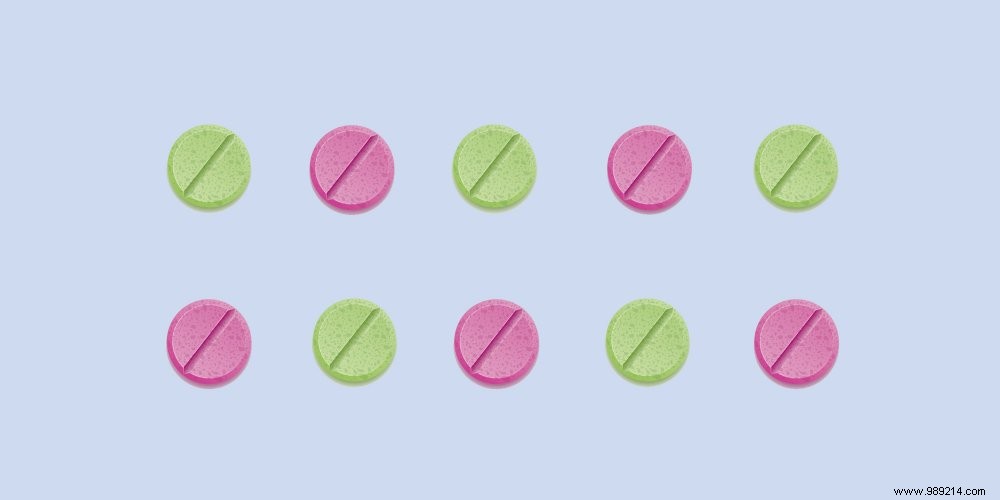 Distilbène was prescribed to 200,000 pregnant women between 1948 and 1977, causing malformations and genital cancer in their children , mostly girls. Thirty years later, these sad heiresses are still fighting for redress.
Distilbène was prescribed to 200,000 pregnant women between 1948 and 1977, causing malformations and genital cancer in their children , mostly girls. Thirty years later, these sad heiresses are still fighting for redress. Distilbene is UCB Pharma's brand of the hormone diethylstilbestrol (DES), designed to prevent miscarriages during pregnancy.
It is estimated that between 1948 and 1977, these round, green and pink pills, also sold as Stilboestrol-Borne and Furostilboestrol, were consumed by 200,000 pregnant women.
In the 1970s, we began to discover that the hormone caused, in utero, malformations and cancers in the children of these women, particularly in girls. Almost thirty years later, the so-called “Distilbene girls” are still struggling to be recognized as victims and compensated. They are about 80,000 in France.
The synthetic estrogen DES present in Distilbène was prescribed, in France, from 1948 to prevent miscarriages but also premature births. The drug even experienced a peak in prescription between 1964 and 1972.
In the early 1970s, several cases of cancer of the vagina and cervix in girls following their in utero contact with Distilbène alerted.
In 1977, the synthetic hormone is officially contraindicated for pregnant women in France, 6 years after the United States. And it was not until 1983, when gynecologist Anne Cabau published her research in an article in Monde , that the scale of the scandal comes to light.
The first Distilbène trial began in 1991, initiated by two “DES girls”. To defend themselves, the laboratories ask for written proof that their mothers took the medicine. Between 1992 and 1999, a general expertise was held, filed in 1999. It led, in 2002, then again in 2003, to the official recognition by the Tribunal de Grande Instance of Nanterre of the responsibility of estrogen in diseases of the two “DES girls” in the trial started in 1991.
Video of the day:Subsequently, the trials will follow, one of the victims will die of cancer, in 2004, two days after the start of his trial, which the laboratories will lose. In all, more than 70 trials have incriminated the drug, according to the association of victims DES France.
Distilbène girls are more likely to develop cancers of the cervix, vagina and breast, to be infertile, to have miscarriages (one in two pregnancies does not come to term), but also to to be menopausal very early. But the hereditary harmfulness of Distilbène does not stop at the second generation.
In April 2011, a French study concerning the 3rd generation of Distilbène children reveals that these grandchildren also suffer from the damage of the drug. They are 40 to 50 times more likely to be born with genital malformations.
After numerous epidemiological studies, a new one, carried out in 2014, shows cases of breast cancer have been identified in Distilbène girls, but also their mothers, especially after 40 years.
They were not believed and sometimes mocked. Marie Darrieusecq, godmother of DES France, told L’Express , in 2013:“For the doctors, we were annoying.” It took until October 2016 for a victim to be recognized by the courts without having to prove that his mother had taken this drug, proof almost impossible to find. The experts judged that his malformations were characteristic of Distilbène and were not attributable to any other cause.
Recently, in February 2019, UCB Pharma laboratories were ordered to pay 3 million euros to a "Distilbene grandson", who lives with a motor and cerebral disability.
Justice is not the only recourse for victims:in the Netherlands, a compensation fund has existed since 2007. A petition was launched in August 2019. Addressed to Agnès Buzyn, she asks for the establishment of a compensation fund. The battle of the Distilbène girls is far from over.
Marie Claire:What do you think of this petition calling for a compensation fund?
Martine Verdier :In the 1990s, this had already been mentioned. But a lot of money was at stake for the labs, and it didn't pan out. Today, a fund could see the light of day in France if the laboratories agree. Such a petition can reasonably weigh in the balance. That said, the Distilbène affair still serves as a great forgotten health scandal, and Agnès Buzyn is already mired in the funds of the Dépakine affair and the fire at the Lubrizol factory in Rouen.
If this compensation kitty sees the light of day, will it be sufficient?
It will have its limits, in terms of money. A compensation fund compensates a victim on average four times less than a court decision. A real change in the law is needed. The current texts are not adapted to these drug risks. Because they are specific to each individual, and are a time bomb over several decades, even generations, as for Distilbène.
Where are the blockages for this compensation for drug victims?
The law must be adapted to these transgenerational damages . I believe that being exposed to such a drug should be imprescriptible. Unlike the United States, in France, the pharmacovigilance system does not work. Doctors don't report problems with medications, in fact few of those between the ages of 30 and 50 know about DES and its effects. If the victims do not mobilize, and if the ministers do not take decisions, we will no longer associate, in the future, these malformations and cancers with their cause:Distilbène.
Read also: